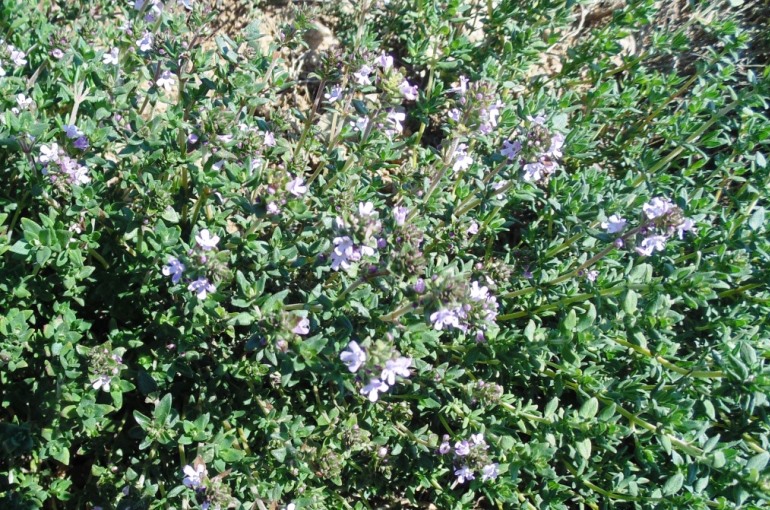Thyme Plants Propagation and Planting

This post is also available in:
This post is also available in:
![]() Español (Spanish)
Español (Spanish) ![]() Français (French)
Français (French) ![]() Deutsch (German)
Deutsch (German) ![]() Nederlands (Dutch)
Nederlands (Dutch) ![]() العربية (Arabic)
العربية (Arabic) ![]() Türkçe (Turkish)
Türkçe (Turkish) ![]() 简体中文 (Chinese (Simplified))
简体中文 (Chinese (Simplified)) ![]() Русский (Russian)
Русский (Russian) ![]() Italiano (Italian)
Italiano (Italian) ![]() Ελληνικά (Greek)
Ελληνικά (Greek) ![]() Português (Portuguese (Brazil))
Português (Portuguese (Brazil))
Thyme plants can be propagated by seeds or cuttings. There are pros and cons in each method. If you do not have your own healthy plants to divide, layer or get stems, then starting your plants from seeds will cost much less than buying thousands of stems. On the other hand, growing thyme from seed will result in not true to type plants. Growing from seed is an affordable but time consuming method that has a certain degree of risk, and needs high quality management in order to ensure plant uniformity. Starting the plants from cuttings costs more, but you can have true to type plants and be ready to plant them in the field in less time.
Thyme Plant Spacing and Number of Plants per hectare
Regardless of whether we started our plants from seed or cuttings, we transplant either during autumn or spring, but definitely 3 weeks after the last frost. In every hectare (1 hectare = 2,47 acres = 10.000 square meters), on average we have about 50.000 – 75.000 plants. We normally plant in rows that will have a distance range of 20-30 inches (50-75 cm). The distances between the plants inside the row range from to 8-16 inches (20-40 cm). Planting is done through machines or by hand.
You can enrich this article by leaving a comment or photo of your thyme plants spacing, planting distances and plant population.
5.) Thyme Plants Propagation and Planting
6.) How to grow Thyme from Seed
7.) How to grow Thyme from Cuttings
9.) Thyme Fertilizer Requirements
12.) Thyme Essential Oil Yield
Do you have experience in Thyme cultivation? Please share your experience, methods and practices in the comments below. All the content you add will be soon reviewed by our agronomists. Once approved, it will be added to Wikifarmer.com and it will influence positively thousands of new and experienced farmers across the world.









































































